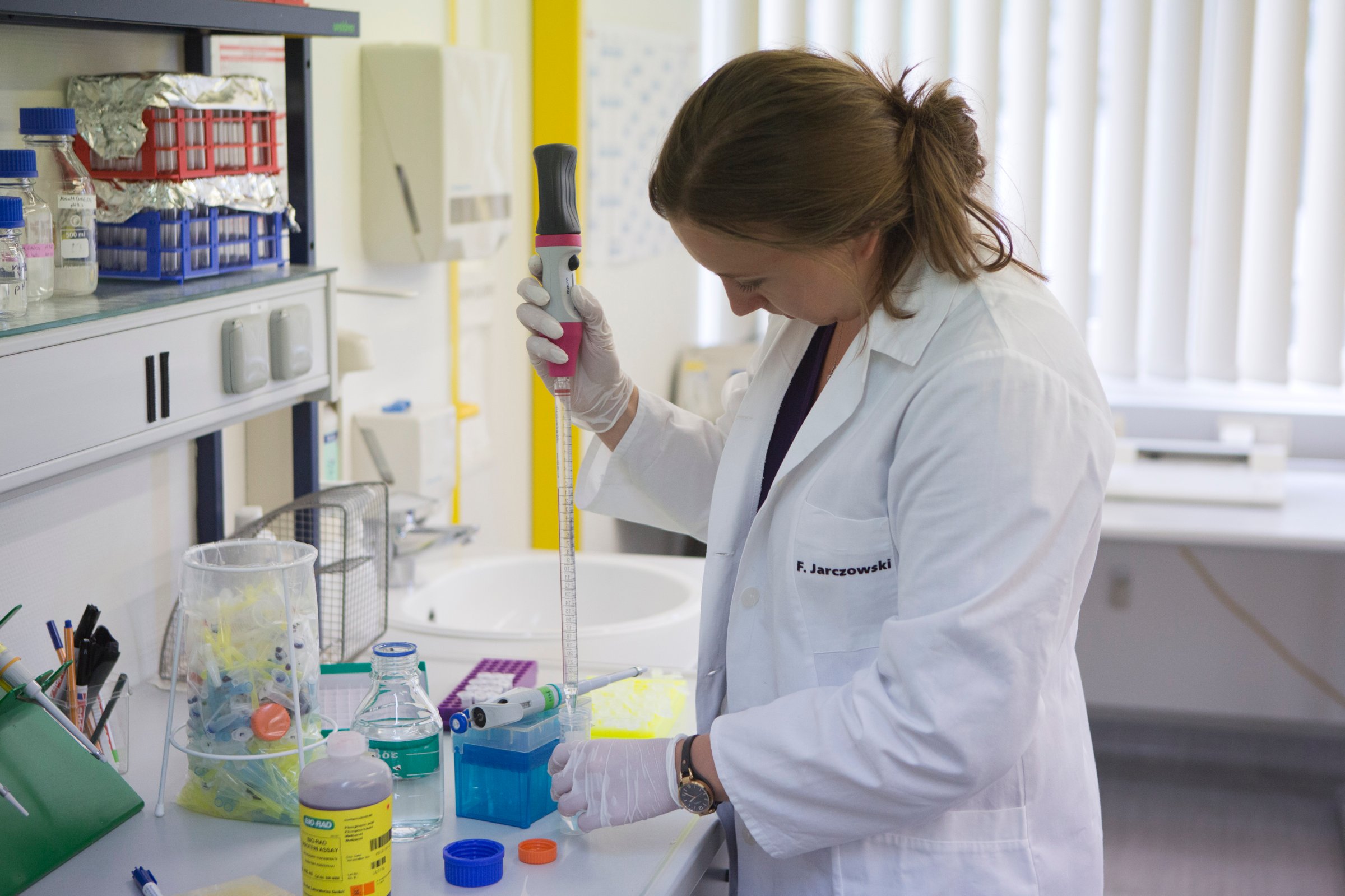
On Nov. 11 and 12, the World Health Organization (WHO) called the world’s leaders on Ebola to decide which promising experimental therapies to begin rigorously testing in order to fight the West Africa outbreak.
There are many encouraging candidates, from the blood of Ebola survivors to drugs that use the latest developments in genetic engineering. None, however, have been properly tested for safety or effectiveness in human patients. Some have been tested in animal models of the disease and have successfully controlled the virus, but the gold standard for any human treatment, be it drug or vaccine, is testing in patients who have been affected by a disease. Since scientists can’t ethically intentionally infect volunteers with the Ebola virus, regulatory agencies like WHO are considering moving some of these treatments directly from animal studies to infected patients in West Africa.
The committee also reviewed information from 18 Ebola patients who were treated outside of West Africa, some with the experimental therapies.
Medecins Sans Frontieres recently announced that it will host three trials of such therapies at its centers starting in December. The humanitarian aid organization will help an international group of researchers test blood from Ebola survivors, as well as two drugs—favipiravir and brincidofivir, both of which interrupt the Ebola virus’s ability to replicate and were initially developed to control other viral infections.
The WHO committee also discussed how the trials should be set up in order to collect valuable data on the treatments’ effects that will guide future treatment decisions. The process is ongoing as new data and products become available, but here’s what the committee concluded so far:
Four drugs should receive priority
The committee evaluated many different types of drugs but prioritized those that manufacturers are able to make in large amounts quickly. Drugs like ZMapp, the cocktail of antibodies that successfully treated the U.S. aid workers Dr. Kent Brantly and Nancy Writebol, are promising but only available in small quantities. Other antibody-based therapies have the same problem, as do cutting-edge treatments that seek out and bind to the virus’s genes.
The committee therefore focused on other drugs that can be made in sufficient doses to test. These include favipiravir, brincidofivir, toremifine and interferons. While there is little evidence in humans about how well these drugs work against Ebola, their availability made them good candidates to begin testing in trials in West Africa.
Anti-viral drug lamivudine is not effective against Ebola
Data presented by experts to the committee did not show that the antiretroviral drug, which is used to treat HIV and hepatitis B infections, works against Ebola. Ebola belongs to a different family of viruses than HIV and hepatitis B, and while the drug disrupts those viruses’ ability to reproduce, it does little to stop Ebola. The committee recommended that lamivudine not be used to treat Ebola; it will include a list of other ineffective treatments on its website to guide doctors caring for Ebola patients.
Three trials of blood from Ebola survivors are underway
These trials will test both the whole blood and the plasma alone from people who have survived Ebola. WHO announced that it will begin working with local health officials to establish blood donation centers in Liberia to allow survivors to provide blood for study and potential use in treating patients.
Ensuring the proper collection and treatment of the blood is crucial to eliminate other potential infections, including malaria and HIV, the committee said. It also called for a standard way to make sure that all patients receive the same blood components. That way, the trials can precisely determine which parts of the survivors’ blood are useful in fighting Ebola, and which are not.
More Must-Reads from TIME
- Cybersecurity Experts Are Sounding the Alarm on DOGE
- Meet the 2025 Women of the Year
- The Harsh Truth About Disability Inclusion
- Why Do More Young Adults Have Cancer?
- Colman Domingo Leads With Radical Love
- How to Get Better at Doing Things Alone
- Michelle Zauner Stares Down the Darkness
Contact us at letters@time.com